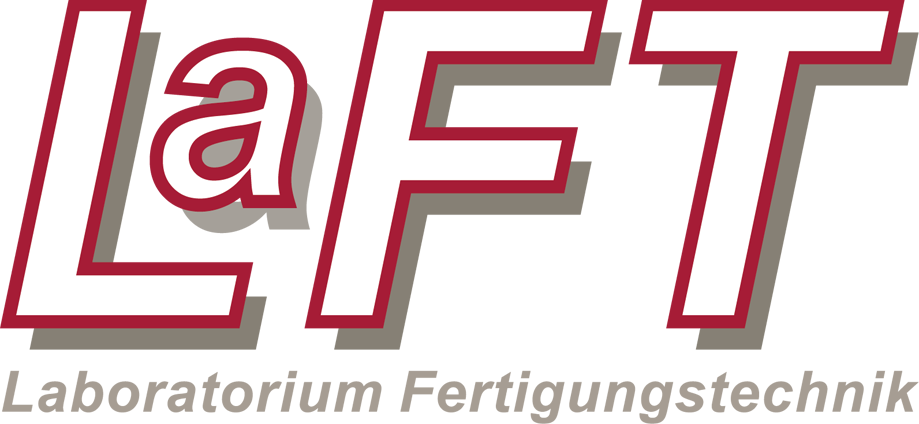The digital infrastructure for Fab Cities
INTERFACER was an EU-EFRE funded cooperation project to develop an open-source based digital infrastructure for Fab Cities. The aim was to realize the Fab City Operating System (Fab City OS): a federated platform to support sustainable, resilient and locally anchored production systems.
The project created the technical foundations for a distributed network in which cities and regions can cooperate globally and produce locally at the same time. The focus was on building a decentralized digital infrastructure for open source hardware, circular production and digital product passports.
Intro
Aims of the INTERFACER project
- Identification, definition and design of interfaces between systems, networks and physical artifacts
- Development of the Fab City OS: building an open-source software infrastructure to coordinate local production based on globally shared knowledge
- Implementation of a Digital Product Passport (DPP): tracking materials and products throughout their entire life cycle
- Development of a federated network architecture: local autonomy and global cooperation
- Creation of an open source hardware toolchain: design, documentation and production of open hardware
- Active community involvement through workshops, stakeholder formats and public relations work
Key results
Fab City Operating System (FCOS)
The Fab City Operating System is a decentralized infrastructure designed to support open source hardware collaboration, secure identity management and fair compensation throughout the design and manufacturing cycle. Developed as part of the INTERFACER project, the open-source platform helps fab labs, cities and regions build and operate a decentralized local value creation system by matching local demand for physical artifacts with local production capacity and other services. More information about FCOS here.
It features a passwordless, EDDSA-based cryptographic wallet system with W3C DID compliance, supports blockchain-anchored Digital Product Passports (DPP) for asset traceability and enables secure, traceable contributions to designs, products and services.
The platform integrates tools for importing and improving open hardware documentation (e.g. from GitHub, GitLab, LOSH) and includes complementary components for deployment management, website creation and community hubs, FabAccess for machine access control, and the OSH toolchain for metadata automation and Open Know How compliance – promoting a federated, transparent and fair digital manufacturing ecosystem.
Fab City OS Core
The component includes tools to promote collaborative processes and fair remuneration throughout the entire design and production cycle. It uses crypto technology for data protection, transparency and data sovereignty. A blockchain-based digital product passport enables traceable documentation of the asset lifecycle (detailed information here).
Repository Link: Interfacer · GitHub
Fab City OS Suite
The component offers Fab Cities and their members an easy way to create their own websites with a uniform Fab City design and open source workflows. It is based on Astro and contains specific functions such as a knowledge management system and a member and event map. It is still possible to switch systems at any time.
The suite includes all the digital tools needed to set up and operate a Fab City in a kit that can be installed on your own local server.
Repository Link: Fab City OS Suite · GitLab
Digitaler Produktpassport
The Digital Product Passport (DPP) contains structured product information, including on sustainability, to promote circular processes such as reuse and repair. Stored on a blockchain, it guarantees reliable data, reduces costs and promotes global collaboration. The DPP also supports recycling, dismantling and green practices. It can be accessed via QR code, for example, and is integrated into Fab City OS Core. Find out more here.
Creative Flows
The “Creative Flows” concept in the Fab City OS Core enables fair remuneration for open source contributions. It standardizes the sharing and tracking of open hardware, promotes global collaboration and uses blockchain technology for fair revenue distribution. The goal is a decentralized, fair economic model. Find out more here.
Fab City Index
Testing and verification of a method to assess and monitor the circularity status of a Fab City.
Open Toolchain Foundation
Promoting and supporting the further development of open source software, which is required for the development of open source hardware.
Your Idea. Made in Hamburg.
The Maker Challenge Hamburg (April-May 2022) was an open ideas competition organized by Fab City Hamburg as part of the EU INTERFACER project. The aim was to collect local, socially or ecologically meaningful product ideas from the population (individuals, schools, groups) that can be produced in Fab Labs or Open Labs – in the spirit of the circular economy. MAKER CHALLENGE – Fab City Hamburg Innovation Community

95 ideas submitted – from bicycle lighting and smart garbage cans to wheelchair-accessible stair aids. Photo: CC BY-SA 4.0 / Laura Müller

Photo: CC BY-SA 4.0 – interfacer.eu / Laura Müller

Our winners of the Maker Challenge with their product idea of a portable filter cap – always clean drinking water outdoors. Photo: CC BY-SA 4.0 / Dawid Jakubowski (#tfom23)

Realization of over 20 prototypes, which were presented to the public at the the future of making conference in March 2023. Pictured here: The “Circular Screwdriver” from INDEED. Photo Credits: CC BY-SA 4.0 / Dawid Jakubowski

Tins made from recycled coffee grounds using a 3D printer. Photo Credits: CC BY-SA 4.0 / Dawid Jakubowski (#tfom23)

Hydroponic from Hamburg – Healthy and vigorous plants with minimal water consumption. Photo Credits: CC BY-SA 4.0 / Dawid Jakubowski (#tfom23)

The modular, open-source based microscope – PlanktoScope. Photo Credits: CC BY-SA 4.0 / Dawid Jakubowski (#tfom23)


Building Workshops
“Building for all” was a three-month series of free workshops on sustainability, open source principles and production techniques. In Hamburg Fab Labs, products and prototypes were built together – based on openly licensed documentation that enables worldwide rebuilding and adaptation. The projects also served as application examples for mapping manufacturing processes in the Fab City OS Core. Repository links: INTERFACER – OSH Build Workshops – GitLab
the future of making
After almost two successful years, the EU project INTERFACER came to an end in March 2023. At the final event, the future of making Conference + Expo, visions for a locally producing, globally networked city of Hamburg were shared and paths to a circular economy were discussed. The project laid the foundation for the digitalization of local production, international cooperation and a strong maker scene in Hamburg – in response to global challenges such as climate change.


Globally united – representatives of the Fab City Global Initiative, Fab City Hamburg, dyne.org, HIWW, New Production Institute, Inmachines, OpenToolchain Foundation at #tfom23. Photo: CC BY-SA 4.0 / Dawid Jakubowski

Dr.-Ing. Tobias Redlich, Academic Director of the New Production Institute. Photo Credits: CC BY-SA 4.0 / Dawid Jakubowski (#tfom23).

Ceremonial launch of the OpenToolchain Foundation, which emerged from the Interfacer project. Photo Credits: CC BY-SA 4.0 / Dawid Jakubowski

Panel Discussion with Sarah Prien(House of All) and Nadine Herbrich (recyclehero). Photo Credits: CC BY-SA 4.0 / Dawid Jakubowski (#tfom23)

Photo Credits: CC BY-SA 4.0 / Dawid Jakubowski (#tfom23)

Daniele Ingrassia, Founder and CEO of Inmachines, in the OpenLab Microfactory, exhibited at #tfom23. Photo: CC BY-SA 4.0 / Dawid Jakubowski

An open-source coffee grinder made with a laser cutter and a CNC milling machine. All parts are repairable and interchangeable. Here on Github. Photo: Dawid Jakubowski.
The five Hamburg principles of circular design
The Circular Design Deep Dive event took place from June 22-24, 2022 as part of the INTERFACER project in collaboration with Fab City Hamburg and the Design Zentrum Hamburg. It included lectures, discussions and workshops with international experts. Five principles for circular design were developed in a co-creative process. These were based on 15 theses that emerged from speaker inputs, were discussed with the audience and further developed in workshops.

Fab City Operating System
INTERFACER
Building the digital infrastructure for Fab Cities
The need to reorganize globalized value creation and production systems and to establish sustainable and synergetic production processes worldwide was the starting point for the INTERFACER project. The aim is the development, initial application and dissemination of an open source software system called Fab City OS (OS = Operating System), which can be implemented as a software stack along the value chain at the respective units of the global network, e.g. Fab Cities, Fab Labs, in order to establish and operate a local yet globally networked value creation system.
Conference and Expo
the future of making
At the future of making conference, we worked with local and international changemakers to hone a vision for Hamburg as a locally productive, globally networked city. The focus was on the circular economy, circular design and the question of how digitalization and collaboration can enable transformation. Projects such as Fab City Hamburg and INTERFACER show that “the future of making” is networked, sustainable – and starts locally. Thanks to all the speakers, makers and co-creators for these inspiring days full of ideas, energy and new beginnings!
Project title & duratoin
- INTERFACER – Building the Digital Infrastructure for Fab Cities
- 2021-2023
Project partner
Partner projects
Funded by
Consortium partners








